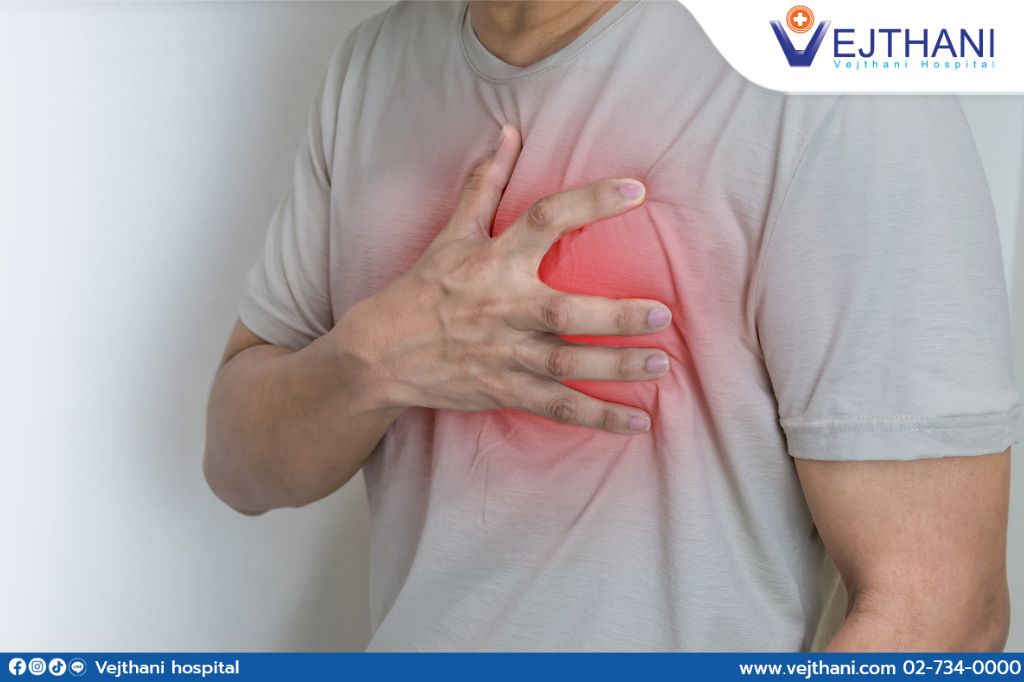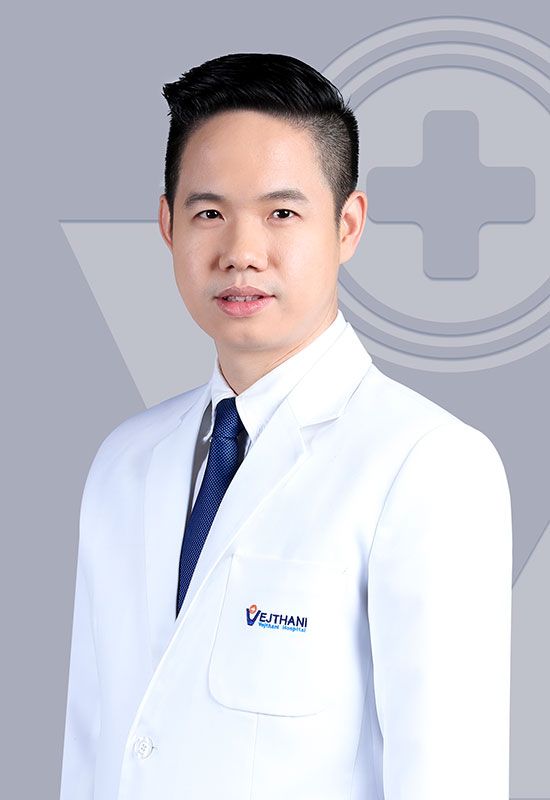A Warning Sign from the Heart: Why Persistent Fatigue Shouldn’t Be Ignored
Feeling fatigued easily may be an early sign of heart disease. Learn how fatigue links to heart failure, heart arrhythmia, cardiomyopathy, and more.

Atrial Septal Defect (ASD) is a congenital heart defect that occurs in children or teenagers. However, some are diagnosed in their adulthood.
Dr. Suphasit Sathittrakool, a cardiologist at Vejthani Hospital, explained that atrial septal defect (ASD) is a congenital heart defect that occurs with abnormal heart development in the womb, causing a leak in the wall that separates the upper chambers of the heart, the atria. This opening allows oxygen-rich blood from the left atrium to mix with oxygen-poor blood from the right atrium, causing extra blood to flow to the lungs. This results in an abnormal enlargement of the heart. If left untreated for a long time, it will lead to pulmonary hypertension and, eventually, heart failure.
The symptoms of atrial septal defect vary on the size and location of the defect. In general, children with significant defects are more likely to experience symptoms in the early stage. They could have rapid breathing, fatigue easily, less milk consumption, slow weight gain, excessive sweating, frequent lung infections, and bluish skin tone (cyanosis). Patients with minor defects may not experience any symptoms during childhood and adolescence. As they enter adulthood, they may begin to experience signs like fatigue, shortness of breath, especially during exertion, heart palpitations, decreased exercise tolerance, and dizziness or fainting. However, in some cases, this condition may be detected during annual routine checkups without noticeable symptoms.
Diagnosis of atrial septal defect (ASD) typically begins with a medical history, physical examination, and the checking of heartbeat. Other procedures include an electrocardiogram (ECG), chest X-ray, and echocardiogram. An echocardiogram provides a detailed view of the heart’s internal structures, including the atrial septum, heart muscle, and heart valves. If a defect is found, the doctor can assess its size, location, blood flow direction, and pulmonary pressure to plan a proper treatment.
Treatment for ASD depends on the size, location, and severity of the defect, as well as the patient’s age and overall health. The options include:
Patients of reproductive age can resume sexual intercourse 1-2 weeks after atrial septal defect (ASD) closure. However, it is advised to consult with your doctor to ensure safety.
Cardiac Center, Vejthani Hospital
Call: (+66)2-734-0000 Ext. 5300
English Hotline: (+66)85-223-8888
